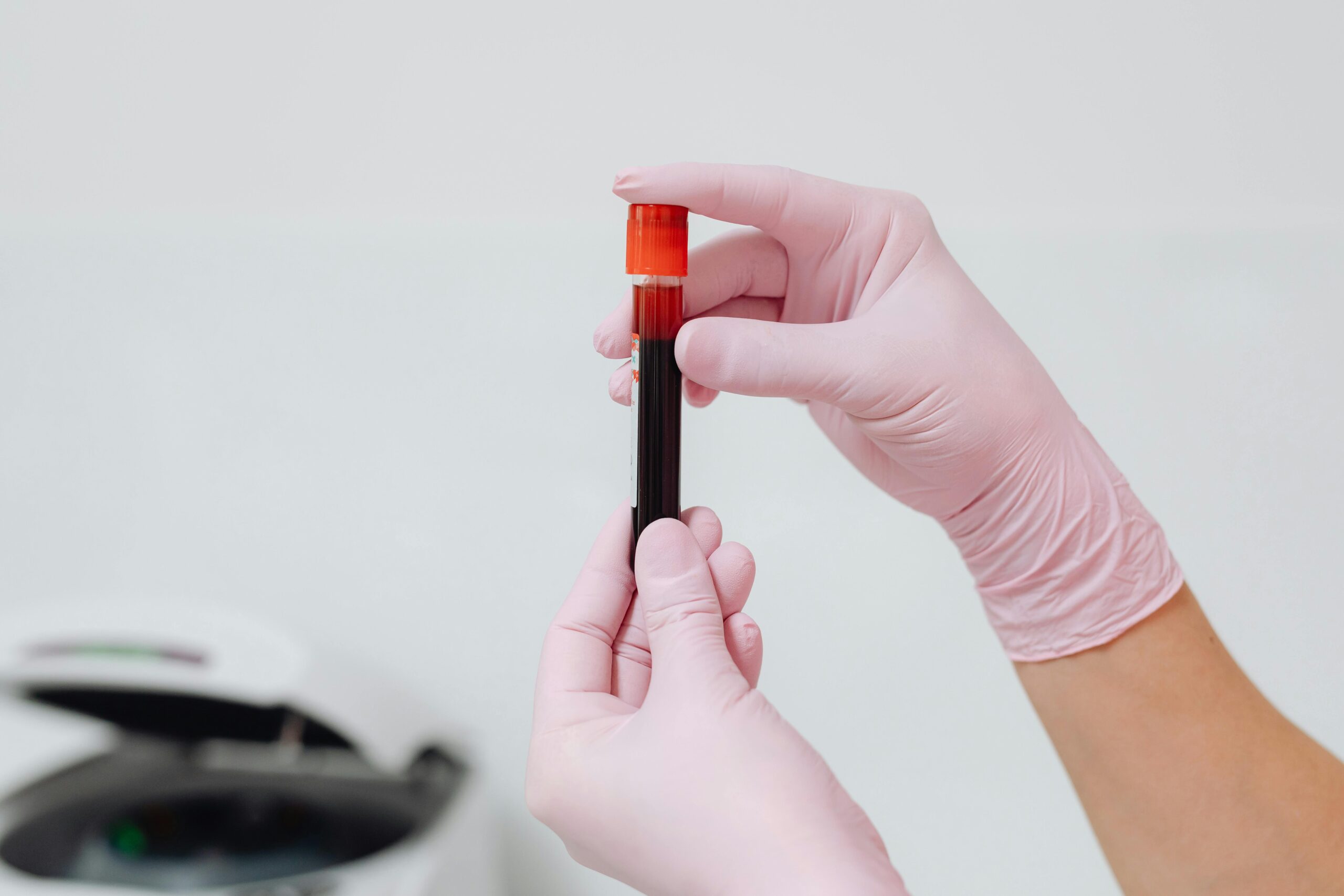Wayne Lowry

Direct Primary Care (DPC) offers a fresh approach to healthcare by focusing on personalized and accessible services that put patients first. Many people are drawn to DPC because it simplifies healthcare and fosters a stronger doctor-patient relationship. But a common question patients ask is “is lab testing included in Direct Primary Care?” Knowing the answer is essential for those considering this model, since lab services are a cornerstone of preventive and chronic care. This article explores how lab testing fits into DPC memberships and what patients should expect.
Direct Primary Care (DPC) redefines access to care by centering on affordable healthcare through personalized, patient-centered care agreements. DPC eliminates insurance barriers by using a subscription model that fosters direct access to a primary care physician and strengthens the doctor-patient relationship.

Direct Primary Care is a healthcare delivery model that connects patients and providers via straightforward service agreements. Patients pay a periodic fee covering comprehensive services such as annual check-ups, chronic disease management, and preventive care. This model emphasizes cost transparency, often including discounted services and self-pay options without involving third-party insurers. Providers focus on personalized medicine and a holistic approach by spending more time with each patient and coordinating care tailored to individual health needs.
Subscription Model: Patients pay a flat fee for access to a healthcare provider, which usually covers office visits, telemedicine, and care coordination.
Cost Transparency: Clear pricing helps patients understand what services are included and which may require additional fees, particularly important for lab testing.
Comprehensive Services: Regular check-ups, chronic disease management, and preventive screenings create a full spectrum of primary care.
Direct Access and Care Coordination: Patients enjoy easier scheduling and better communication with their primary care physician, who also manages specialist referrals.
Patient-Centered Care: DPC prioritizes personalized attention, which supports more effective healthcare outcomes and stronger relationships.
Direct Primary Care advances accessible, affordable healthcare by focusing on deeper doctor-patient connections and simplifying costs. These features collectively establish a healthcare environment where personalized medicine thrives and patients receive tailored, preventive care efficiently.
For more information about the benefits and providers in your area, visit Best DPC’s search page. To understand how DPC works in practice, explore Best DPC’s blog. Providers interested in joining this evolving model can find opportunities at Best DPC Join.
Lab testing plays a crucial role in Direct Primary Care (DPC), supporting preventive care, chronic disease management, and personalized medicine. Many DPC practices integrate lab services within their comprehensive service agreements, enhancing access to care through cost transparency and direct access to the primary care physician. Exploring the scope of lab testing in DPC helps patients navigate affordable healthcare options.
Lab tests serve as essential tools in monitoring health status and guiding treatment decisions in primary care. They provide objective data for early detection of illnesses, assessment of risk factors, and evaluation of treatment effectiveness. For example, routine labs like complete blood counts and metabolic panels can reveal signs of anemia, diabetes, or kidney disease before symptoms arise.
In the DPC model, these tests support personalized medicine by allowing the healthcare provider to tailor care plans based on individual laboratory results, which strengthens the doctor-patient relationship. Comprehensive services including regular lab monitoring contribute to effective chronic disease management and preventive care, reducing reliance on emergency interventions.

Direct Primary Care providers commonly include basic lab tests in their subscription models. These typically encompass:
Complete Blood Count (CBC)
Comprehensive Metabolic Panel (CMP)
Lipid panels to assess cholesterol levels
Hemoglobin A1C for diabetes monitoring
Thyroid function tests such as TSH and T4
Urinalysis for kidney and urinary tract health
Some DPC practices offer point-of-care (POC) testing during visits, including rapid assessments for flu, strep, pregnancy, and A1C, as well as phlebotomy services for immediate sample collection. Even when labs are not fully included in membership fees, many clinics provide discounted testing through partnerships with local laboratories, lowering out-of-pocket costs substantially. This cash pricing aligns with DPC’s emphasis on affordable healthcare by bypassing traditional insurance billing.
|
Lab Test Category |
Examples |
Inclusion in DPC Membership |
Additional Notes |
|---|---|---|---|
|
Routine Blood Panels |
CBC, CMP, Lipid panels, A1C |
Often included |
Key for preventive care and chronic disease management |
|
Point-of-Care Testing |
Flu, Strep, Pregnancy, Urinalysis |
Sometimes included |
Delivered during visit, providing rapid results |
|
Discounted External Labs |
Specialized labs, extras |
Available at discounted cash prices |
Facilitates access to broader testing options |
Patients seeking personalized medicine benefit from the transparent service agreements of DPC practices, which clarify lab testing coverage upfront. This transparency supports patient-centered care by eliminating unexpected costs and streamlining care coordination.
Discover more about Direct Primary Care and access a network of providers committed to comprehensive, affordable care at Best DPC. Searching for DPC providers with integrated lab services is straightforward on their search platform. For further insights into the model’s benefits, visit their blog. Providers interested in joining this evolving healthcare model can find information here.
Lab testing often forms an integral part of Direct Primary Care, supporting preventive care and chronic disease management within a patient-centered framework. Exploring how DPC providers handle lab tests reveals variations and flexibility inherent in the model.

Many DPC practices bundle basic lab tests into membership fees to ensure comprehensive services under cost transparency. Included tests frequently cover:
Complete Blood Count (CBC)
Lipid panels, A1C, thyroid function tests (TSH, T4)
Urinalysis, vitamin levels
Some DPC clinics provide point-of-care (POC) testing during visits, offering rapid results for conditions like flu, strep, pregnancy, and A1C. This approach improves access to care and expedites diagnosis within the direct doctor-patient relationship. Others facilitate phlebotomy and labs with immediate sample processing on-site.
Providers emphasize personalized medicine by integrating lab results directly into service agreements, enabling immediate care coordination and adjustments. This transparency and efficiency illustrate the subscription model’s advantages, reflecting a holistic approach to healthcare.
Coverage of lab testing varies by practice. Some include a broad range of routine labs and procedures at no additional cost, supporting annual check-ups and ongoing chronic disease management. Others offer only limited labs bundled with membership fees, directing patients to external providers for specialized tests.
A few DPC clinics focus on preventative services and selective on-site testing but exclude extensive lab panels from the subscription. This model may refer patients to specialists for advanced diagnostics, integrating these referrals into personalized care plans. This flexibility aligns with DPC’s emphasis on direct access and affordable healthcare tailored to patient needs.

Out-of-pocket costs for lab tests depend on the DPC provider’s model. When lab testing isn’t fully included, many practices negotiate discounted rates with local labs or offer wholesale cash prices. These cash options provide substantial savings compared to traditional insurance billing.
Patients using self-pay options benefit from cost transparency and savings on routine lab panels. However, ancillary or specialized tests might incur additional fees beyond basic membership. Exploring exact policies during enrollment ensures clarity and prevents unexpected expenses.
|
Practice Model |
Lab Services Included |
Additional Cost |
|---|---|---|
|
Basic inclusive subscription |
Routine labs (CBC, CMP, A1C, etc.) |
Typically none |
|
Point-of-care rapid testing |
On-site rapid tests (flu, strep, urine) |
Sometimes none |
|
Discounted external labs |
Wholesale cash labs via flexible billing |
Lower than usual |
|
Full membership with extras |
Labs, imaging, procedures included |
Typically none |
|
Minimal coverage only |
Labs not included |
Standard rates |
Prospective patients considering Direct Primary Care for its personalized services and comprehensive care benefits can find detailed provider listings and further information at Best DPC’s search portal. Exploring available practices offers clarity on lab testing policies and membership benefits within this evolving healthcare model.
Exploring lab testing coverage helps patients fully benefit from Direct Primary Care’s personalized and affordable healthcare model. Confirming lab services before enrollment ensures alignment with care expectations and budgeting needs.
Asking specific questions reveals the scope of lab testing included in your DPC membership. Key inquiries include:
Which basic lab tests are covered under the subscription model, such as CBC, CMP, lipid panels, or A1C?
Are on-site point-of-care tests available during visits, including rapid flu or strep tests?
What lab services require additional fees, and are their discounted rates or self-pay options for external tests?
How does the practice coordinate specialist referrals if specialized lab work is needed?
What does the service agreement state regarding lab testing and cost transparency?
These questions clarify the extent of comprehensive services and preventive care covered. They also reinforce direct access to the primary care physician and highlight care coordination practices within the chosen DPC model.
Lab testing plays a vital role in the Direct Primary Care model by supporting timely diagnosis and personalized treatment. While many DPC practices include basic lab tests within membership fees, coverage can vary significantly. Patients should carefully review lab testing options and costs before enrolling to ensure their healthcare needs are met without unexpected expenses.
Exploring the scope of lab services in DPC helps patients make informed choices and fully benefit from this patient-centered approach. Clear communication with providers about lab testing availability and fees strengthens the partnership and promotes better health outcomes.
Direct Primary Care is a healthcare model where patients pay a regular fee for personalized, comprehensive services without involving insurance. It focuses on strong doctor-patient relationships and affordable, accessible care.
Many DPC memberships include basic lab tests such as complete blood counts and metabolic panels. However, coverage varies by practice, so it’s important to confirm which tests are included before enrolling.
Lab tests provide objective data for early illness detection, ongoing disease management, and personalized treatment plans. On-site testing also allows for quicker results and better care coordination.
Not all DPC practices have on-site labs. Some offer point-of-care testing for immediate results, while others refer patients to external labs, often with discounted rates.
Some DPC memberships cover basic lab tests in the fee, but specialized tests or those done outside the practice might require additional payment. It’s best to ask providers about any extra lab fees upfront.
Ask prospective DPC providers about which lab tests are included, availability of point-of-care testing, any additional costs, and how they coordinate specialist referrals for advanced diagnostics.
Clear information about lab test coverage helps patients avoid unexpected expenses and choose a DPC practice that fits their healthcare and budget needs.
Resources like Best DPC offer directories and detailed information to help patients compare practices and verify lab testing policies before enrolling.

ABOUT AUTHOR
Wayne Lowry
Wayne Lowry, Founder of BestDPC, is a passionate advocate for Direct Primary Care (DPC) and its mission to deliver personalized, accessible healthcare. He believes that DPC providers should serve as the trusted first point of contact for all medical needs, ensuring patients never feel isolated or uncertain about their health decisions. Through his work, he champions a patient-first approach to healthcare, building a system that prioritizes guidance, support, and trust.

Thank You for Registering!
Your registration was successful! We're excited to have you on board. Please check your email for a confirmation link to complete your registration.